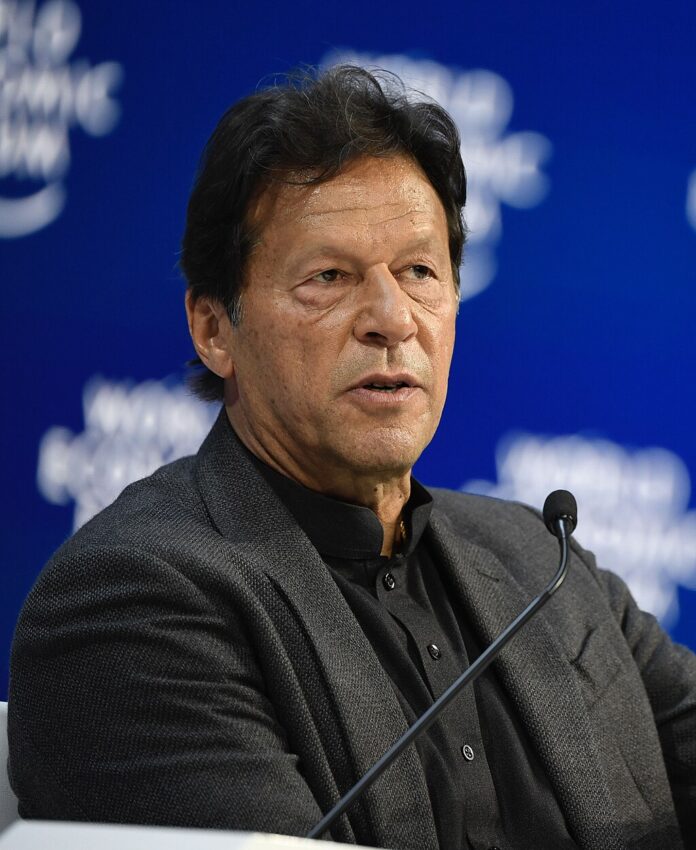Military spokesman suggests legal action under Army Act for those using military personnel for personal or political gain, amidst speculation about Imran Khan’s potential court-martial
On September 5, 2024, the Pakistani military raised the possibility of a military trial for former Prime Minister Imran Khan, emphasizing that anyone who uses military personnel for personal or political purposes could face legal repercussions. The remarks were made by Lt Gen Ahmed Sharif Chaudhry during a media briefing at the Inter-Services Public Relations (ISPR) office in Islamabad.
Gen Chaudhry’s statement came in response to queries about a potential court martial for Khan. He indicated that while the matter is currently under judicial review and therefore hypothetical, the military is prepared to take legal action if evidence of misuse of military personnel for personal or political gain is found.
Embed from Getty ImagesThe reference to the Army Act, specifically Section 2(d)(i), suggests that civilians who attempt to undermine military duty or allegiance could be tried under military law. This Act governs the conduct of military personnel and provides the framework for military trials. Speculation about Khan’s trial has intensified following his request for intervention from the Islamabad High Court to prevent a possible court martial. Khan’s concerns stem from his potential involvement in the May 9 violence and the arrest of former spy chief Faiz Hameed, who might be turning approver against him.
Gen Chaudhry also addressed the arrest of retired Gen Faiz Hameed, highlighting allegations of constitutional and legal breaches for advancing political interests. When questioned about the roles of former ISI chief Naveed Mukhtar and former army chief Qamar Bajwa in Hameed’s appointment, the spokesman implied that Khan, as the then-Prime Minister, was responsible for the appointment decisions. He urged caution against making unsupported claims about other officers’ involvement.
The ISPR chief reiterated the army’s commitment to its professional and non-political role, stating that the military does not pursue any political agenda or support any political party. He emphasized that the army’s internal accountability system would address any instances of personnel pursuing personal or political interests.
In addition to the potential military trial, Gen Chaudhry provided an update on the army’s counter-terrorism operations. He reported that in the first eight months of the year, the military conducted 32,173 intelligence-based operations, killing 90 alleged extremists. He noted that over 130 operations are carried out daily, resulting in the martyrdom of 193 soldiers during this period.
Gen Chaudhry criticized civilian authorities for their inadequate efforts in counter-terrorism, suggesting that their lack of action has contributed to ongoing terrorist threats. He outlined the army’s achievements in clearing and holding territory but expressed regret over the delays in the build and transfer phases managed by local and provincial governments.
He also mentioned the increased facilitation of Tehrik-i-Taliban Pakistan (TTP) from Afghanistan since the Taliban’s return to power, indicating that measures are being taken to address cross-border terrorism.
Analysis:
Political Perspective: The military’s statement on a potential trial for Imran Khan reflects ongoing political tensions and the military’s stance on accountability. By hinting at possible legal action, the military signals its readiness to enforce discipline and legal standards, potentially influencing political narratives and public perceptions of Khan’s actions and their legal implications.
Social Perspective: The potential trial of a former prime minister by a military court could have significant social implications, influencing public opinion on the military’s role in political affairs and its approach to justice. This development may affect societal trust in both military and civilian institutions, depending on how the situation unfolds and is perceived by the public.
Racial Perspective: The issue at hand does not have direct racial implications, as it primarily concerns political and legal matters involving a high-profile individual. However, the broader context of military and political actions may intersect with ethnic and regional dynamics in Pakistan, influencing how different communities view the military’s role and actions.
Gender Perspective: There are no direct gender implications in the current developments. However, the outcomes of the trial and the military’s actions could indirectly affect various demographic groups, including women, by shaping the overall political and security environment in the country.
Economic Perspective: The potential military trial of Imran Khan and ongoing counter-terrorism operations could have indirect economic impacts. Political instability and security issues may affect investor confidence and economic stability, influencing both domestic and international economic conditions.
